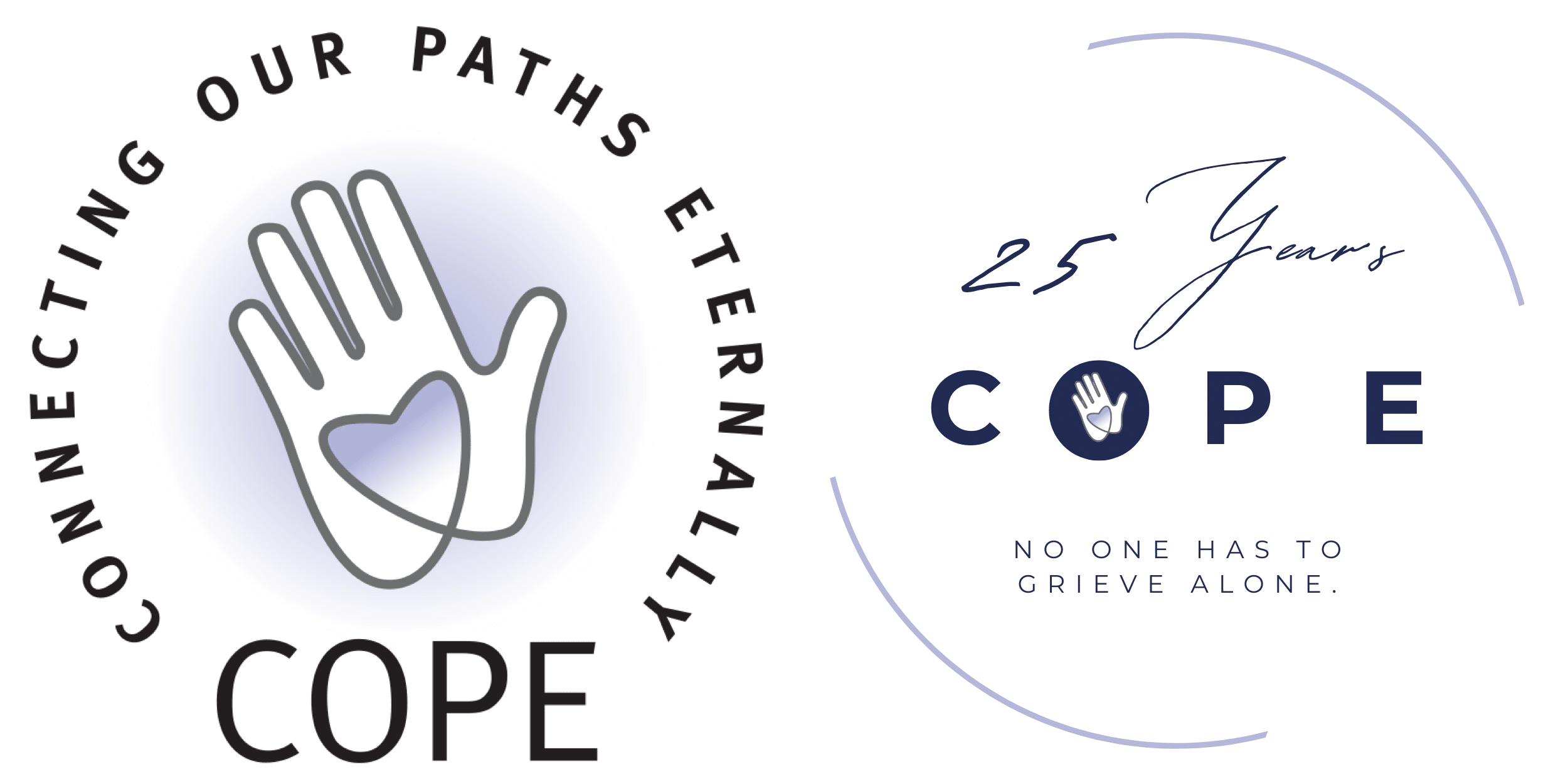From COPE Clinical Director Amy Olshever, PhD, LCSW
Losing a loved one stays with us forever. But holidays, in particular, can be grief triggers (Healing Tips 11/16), causing similar reactions to anniversaries and birthdays and making the loss even harder to cope with. With its focus on love and relationships, Valentine’s Day can be especially difficult. It is hard to escape because reminders are everywhere, often causing us pain. But even when it seems impossible, we cope with that pain. We cope with that pain because the vast majority of us are hard-wired to survive. How we cope is where it can look different. We all cope differently. How we grieve depends on many factors, including personality and coping style, life experience, faith, spirituality and the nature of our loss (who we lost and how we lost them). What is true for all of us is that the grieving process takes time. But for each of us it takes a different time. And even for ourselves–we may grieve differently on different days and in different moments. Healing happens, but it happens gradually; it can’t be forced or hurried. Whatever our grief experience looks like today, in this moment, it is important that we are patient with ourselves and allow our individual process to unfold.
Here are some ideas to specifically help you cope on Valentine’s Day (and other trigger days).
- Eliminate or manage your expectations. Don’t assume you will be sad—you might find that memories come up that are comforting. You may want to laugh or smile. Don’t be afraid of joy and laughter. Research has shown that positive emotions and laughter are hugely helpful when coping with loss.
- Have a plan: Don’t get blindsided on the day, if you know it is coming. Do something that feels safe to you.
- Seek support. Having the support of loved ones who understand how you’re feeling can be very helpful. You can tell your friends or family that you don’t want to be alone that day (or that you prefer to be alone—and that is okay). Come to a support group! Groups are great places to learn what works for others with similar losses.
- Journal or write it down. Journaling can help you release those stored-up feelings in a safe place, Come to one of our Writing Workshops to get started.
- Most Importantly–Do what works for you.
Think about what will make you feel better. If you’re not sure, consider what healthy coping skills have helped you before when facing difficult times. Coping doesn’t have to be perfect or fit a mold—it just needs to get the job done.

